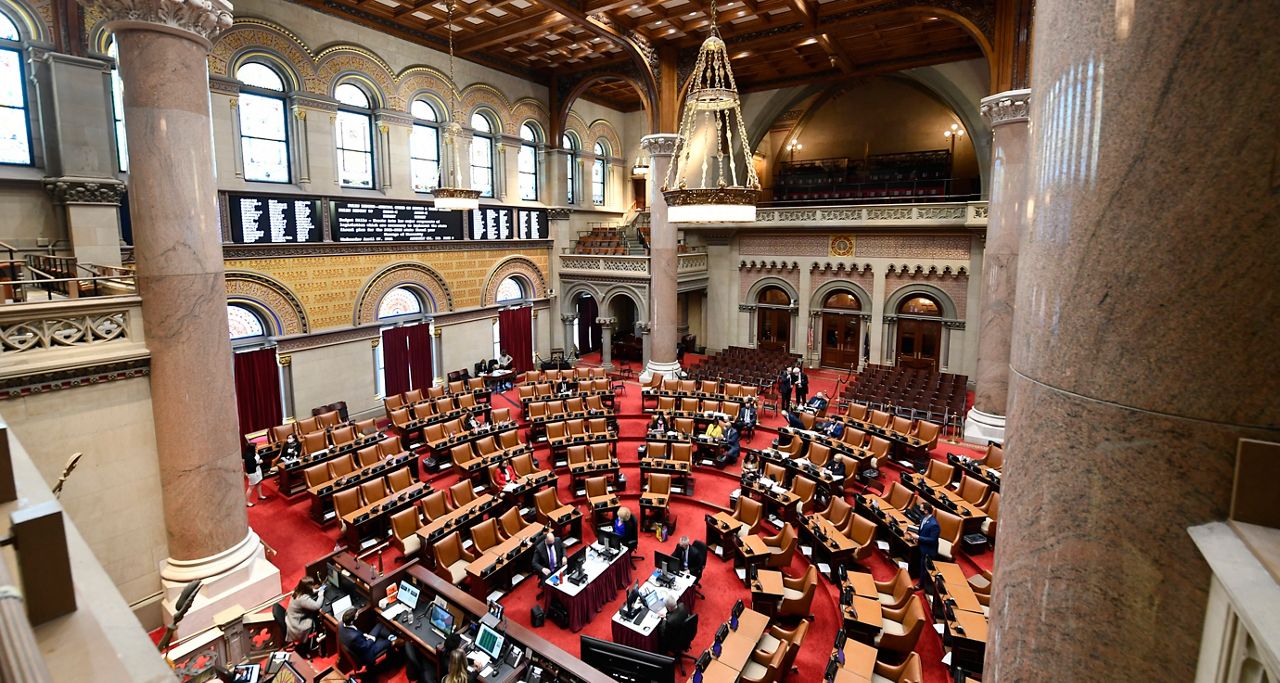With the $229 billion budget in the books four weeks late, state lawmakers have less than a month to go before they are scheduled to leave Albany for the rest of the year.
The pending end of the 2023 legislative session means a variety of issues — from public safety to housing — will bubble up to the surface. Some are issues that did not get accomplished in the budget. Others are measures lawmakers hope to put their stamp on by June.
Here are four issues state lawmakers might address in the coming weeks:
1. Sealing criminal records.
The bill, known to supporters as the Clean Slate Act, would allow for criminal records to be sealed a number of years after a conviction. The measure has stalled for several years in the Democratic-led state Assembly.
But Speaker Carl Heastie this month indicated the bill could get a vote in his chamber before the session concludes on June 8 — a vote that would come after the state budget included changes to the state's bail law opposed by criminal justice advocates.
Business organizations and progressive advocates have supported the records sealing bill. But Republicans have called the provision a potentially dangererous move and against the wishes of voters who have cited public safety as a top issue.
2. Housing.
Gov. Hochul did not get her sweeping housing plan in the state budget agreeement. She wanted a range of issues covered in the compact, including provisions to develop closer to commuter rail stations, allow for the state to override local zoning decisions for qualified projects as well as create community-level targets in effort to expand housing by 800,000 units in the next 10 years.
Hochul has said she will likely push for "elements" of her housing plan in the coming weeks, though has not gone into specifics.
One of those measures could be the extension of the 421a tax abatement, which is meant to promote affordable housing. Labor unions, however, have urged Democratic lawmakers to make changes to the provision, warning against a "straight" extension.
3. Changes to New York's alcohol laws.
Businesses are closely watching whether New York lawmakers will act on recommendations issued this week by a 21-member commission studying the state's alcohol and beverage control laws.
Proposals include addressing so-called blue laws for alcohol sales on Sundays as well as having a licensed establishment within 200 feet of a school or house of worship.
But outside the report, there are additional measures proposed by lawmakers that are potentially wonkier, but could spell significant changes for distributors, such as authorizing direct interstate shipment of liquor, a proposal that is opposed by industry groups like the Retailers Alliance.
4. Wrongful death expansion.
Earlier this year, Hochul vetoed a measure that would have expanded New York's wrongful death statute, enabling a wider swath of people to bring claims in lawsuits.
At the time, Hochul pointed to concerns over the effect the bill would have on insurance premiums for businesses, local governments and health care organizations.
State lawmakers who backed the bill have reintroduced a new version of the bill meant to address those concerns by capping payouts and narrowing its scope.
Nevertheless, opponents contend the new measure would still place a costly burden on them were it approved.
5. The next phase of COVID
With emergency orders falling by the wayside more than three years since the start of the COVID-19 pandemic, public health officials are acknowledging a new stage of the pandemic is here.
But with emergency orders expiring, there are some practical issues legislators want to address, including allowing out-of-state medical staff to continue to operate in New York amid an ongoing worker shortage.
Lawmakers in the coming weeks want to pass legislation that will, in essence, continue an executive order allowing them to do so ahead of May 22, when the governor's order is due to expire.


